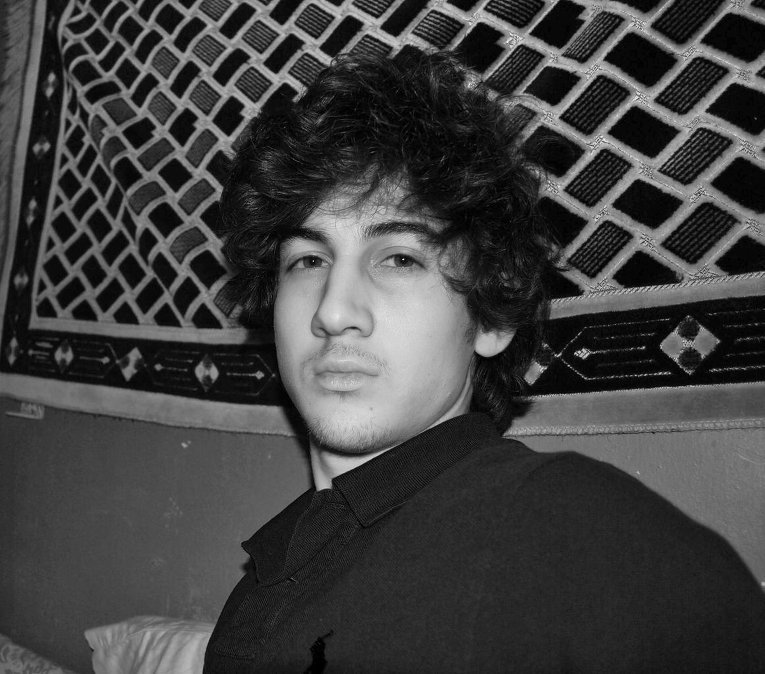MOSCOW, March 6 (RAPSI, Ingrid Burke) – The defense team for Boston Marathon bombing suspect Dzhokhar Tsarnaev hit back in court filings Wednesday against arguments advanced by US prosecutors regarding a detrimental remark the defendant allegedly made during a visit with his sister in the presence of an FBI officer.
Prosecutors emphasized the incident in a motion filed Friday arguing that special restrictions imposed against Tsarnaev should remain in place.
“It is the government’s belief that this comment is the driving force behind the [defense motion to vacate the Special Administrative Measures (SAMs)]. The motion has nothing to do with the SAMs and everything to do with the fact that Tsarnaev, despite the presence of an FBI agent and an employee of the Federal Public Defender, was unable to temper his remarks and made a statement to his detriment which was overheard by the agent,” prosecutors asserted.
In Wednesday’s response filing, the defense team referred to the prosecution’s focus on the comment as a “red herring,” or information intended to be misleading and distracting.
Prosecutors claimed in their motion that when an investigator with the Federal Defenders office began to explain the rationale underpinning the SAMs to Tsarnaev’s sister during a visit, Tsarnaev made a comment to his own detriment.
The defense team claims to the contrary that Tsarnaev was just fooling around. In an effort to put his sister at ease, attorneys say, Tsarnaev “made a comment that might be characterized as jocular or gently mocking.”
The response warns of the broader implication of the prosecutors’ take on the incident, stating: “Apparently, if Mr. Tsarnaev appears to be lighthearted in interactions with his sisters, this will be spun into an argument that he should be executed because he lacks remorse and is insufficiently serious about his predicament or his actions. On the other hand, if Mr. Tsarnaev appears impassive or subdued, those observations also likely will be characterized as evidence that Mr. Tsarnaev is cold-hearted and more deserving of the death penalty.”
Tsarnaev’s team further asserted that the prosecution’s argument “unleashed a wave of unwarranted and prejudicial public speculation,” about the comment, citing local news articles published on the topic.
On the afternoon of April 15, two explosions occurred near the finish line of the Boston Marathon. IEDs devised from pressure cookers, low explosive powder, shrapnel, adhesive, and other materials were hidden in backpacks that were then placed near metal barricades in areas packed with hundreds of spectators.
According to a related indictment, “Each explosion killed at least one person, maimed, burned and wounded scores of others, and damaged public and private property, including the streets, sidewalk, barriers, and property owned by people and businesses in the locations where the explosions occurred.”
Tsarnaev was arrested following a dramatic manhunt, the events of which killed his brother and co-suspect Tamerlan, and claimed the life of an MIT Police Officer Sean Collier. He was charged in a criminal complaint dated April 21 with the use of a weapon of mass destruction and malicious destruction of property resulting in death.
Then on June 27, a federal grand jury returned a 30-count indictment against Dhzokhar, charging him with a plethora of charges related to the bombings and the MIT officer’s death.
At an arraignment hearing on July 10, Dzhokhar pleaded not guilty to all charges pending against him. US prosecutors filed their notice of intent to pursue the death penalty against Tsarnaev on January 30.
In addition to asserting various statutory threshold findings that they argue justify the decision to pursue the death penalty against Tsarnaev, prosecutors advanced a variety of aggravating factors contributing to the decision, ranging from the vulnerability of the Boston Marathon bombing’s youngest victim, to Tsarnaev’s apparent lack of remorse.



